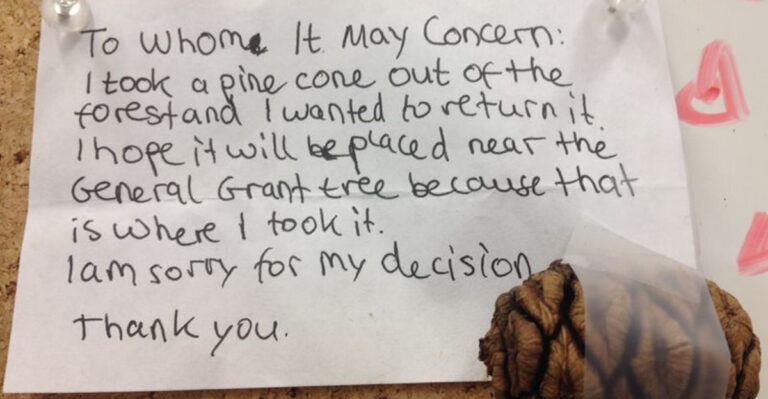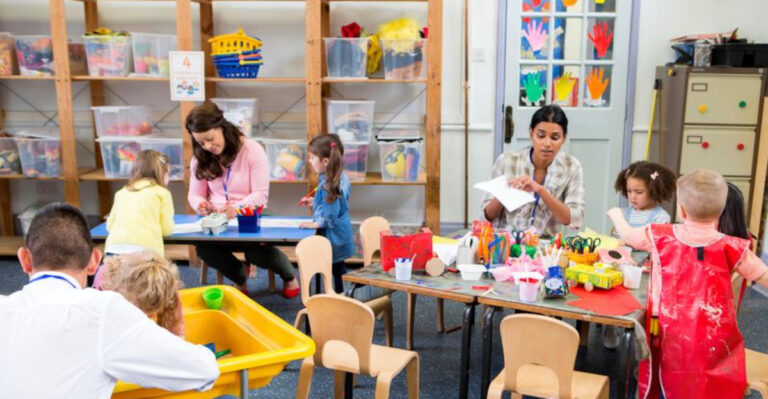16 Behaviors That Make Parents Unbearable to Their Adult Kids, And 3 Habits to Break Before It’s Too Late
Raising a child is one thing. Keeping a healthy relationship with them once they’re grown? That’s an entirely different art form. Because here’s the truth: once your child becomes an adult, the dynamic has to shift. If it doesn’t, what used to be “guidance” can feel like control.
What once felt nurturing may suddenly feel overbearing. If you’ve ever wondered why your grown child pulls away, avoids calls, or seems emotionally distant — it might not be disrespect. It might be a signal that your behavior hasn’t evolved to meet the relationship’s new chapter.
Here are 16 behaviors that push adult children away — plus 3 habits worth breaking now, before the damage becomes permanent.
1. Calling at 5 AM ‘Just to Chat’

Parents who call at the crack of dawn on a Saturday ‘just because’ aren’t showing love – they’re showing a complete disregard for boundaries. Your adult child probably worked all week, maybe stayed out late Friday, and was looking forward to sleeping in.
When you call at unsuitable hours, you’re essentially saying your schedule and needs matter more than theirs. This behavior immediately puts them on the defensive and creates resentment that builds over time.
Even worse is the follow-up guilt trip: “Well, I thought you’d want to hear from your mother, but I guess I was wrong.” Setting reasonable communication windows isn’t your child rejecting you – it’s them establishing healthy adult boundaries. Remember: respecting their time shows you respect them as an independent person, not just as your extension.
2. Rearranging Their Furniture Without Permission

Nothing says “I don’t respect your independence” quite like walking into your adult child’s home and deciding their furniture layout needs your expert touch. While you’re moving the couch “to improve the energy flow,” what you’re really communicating is that their decisions aren’t good enough.
This behavior isn’t helpful – it’s invasive. Your adult child’s home is their sanctuary, not your personal decorating project. When parents make these uninvited changes, they’re essentially marking territory in a space that isn’t theirs.
The message received isn’t “Mom cares about my living space” but rather “Mom doesn’t think I’m capable of arranging my own furniture.” It creates an uncomfortable power struggle in what should be their safe space. Remember that asking “Would you like suggestions on your layout?” shows respect, while silently shifting furniture while they’re in the bathroom shows anything but.
3. Critiquing Their Partner’s Table Manners

Pointing out how your child’s chosen partner holds their fork or chews their food isn’t just rude – it’s relationship sabotage. These seemingly small criticisms create an immediate divide, forcing your child to choose between defending their partner or pleasing you.
When you focus on superficial flaws like table manners, you’re signaling that appearance matters more than substance. Your adult child didn’t choose their partner for their ability to identify the salad fork – they chose them for companionship, love, and shared values.
This behavior is particularly damaging because it happens in social settings where everyone feels trapped. Your child can’t address it without creating awkwardness, and their partner can’t defend themselves without seeming disrespectful. The result? Your child stops bringing their partner around, then eventually stops coming themselves.
4. Insisting on Driving Even When It’s Terrifying

Nothing triggers an adult child’s fight-or-flight response quite like a parent who insists on driving despite declining skills. That white-knuckle grip on the dashboard isn’t decoration – it’s survival instinct kicking in as you drift between lanes or mistake the gas pedal for the brake.
When adult children suggest alternatives like them driving or using a rideshare, it’s not about control. It’s about everyone arriving alive. Yet many parents interpret this concern as an attack on their independence.
The stubborn “I’ve been driving since before you were born” response ignores the reality that reflexes slow and vision changes. Your adult child doesn’t want to hurt your feelings – they just don’t want anyone getting hurt, period. Gracefully accepting help with transportation doesn’t diminish your authority; it demonstrates wisdom and self-awareness.
5. Treating Their Social Media Like a Surveillance Operation

When parents treat their adult child’s Instagram like it’s a CIA intelligence briefing, they’re crossing a digital boundary that feels incredibly invasive. Commenting on every post within seconds, questioning who that new person in their photo is, or worse – bringing up content from their social media during family dinner (“So I saw you were at Dave’s party last weekend…”) creates immediate tension.
This digital hovering feels like you’re hiding in their closet with a notepad. Your adult child’s online presence isn’t an invitation for parental monitoring or interrogation.
The social media stalking becomes especially problematic when parents use this information as ammunition. Mentioning that job posting they liked or questioning why they checked in at a bar on a Tuesday night shows you’re watching their every move. Want to stay connected to your adult child? Engage with their content respectfully and casually – double-tap that vacation photo without the follow-up text demanding a full itinerary.
6. Creating Elaborate Backstories for Their Life Choices

Some parents have a remarkable talent for turning simple adult decisions into complex psychological case studies. When their child chooses to move cities, change careers, or remain single, they construct elaborate narratives explaining “what really happened” – usually involving some form of failure or trauma that doesn’t actually exist.
This behavior is particularly frustrating because it replaces reality with fiction. Your adult child didn’t move to Seattle because they’re “running away from commitment” – they moved for the job opportunity they explicitly told you about. Creating these false narratives shows you’re not actually listening to them.
Worse still is sharing these fictitious backstories with family and friends. Nothing undermines an adult child’s autonomy quite like discovering their parent has been telling everyone they broke up with their partner because of “abandonment issues from childhood” when the relationship simply ran its course naturally. Trust your child’s stated reasons for their choices rather than inventing dramatic alternatives.
7. Performing Health Emergencies for Attention

The mysteriously timed “emergency” that happens right when your adult child mentions vacation plans with friends isn’t fooling anyone. Parents who develop sudden, vague symptoms requiring immediate attention whenever their child establishes independence create a manipulative dynamic that breeds resentment.
These theatrical health crises – headaches that could be “something serious,” unexplained dizziness, or chest pains that never warrant actual medical intervention – are emotional blackmail. They force adult children to choose between living their lives and responding to the latest parental alarm.
This manipulation doesn’t create closeness – it destroys trust. Adult children eventually recognize the pattern and begin questioning all health claims, potentially ignoring genuine emergencies. Parents who genuinely want connection should seek it honestly, not through manufacturing crises that leave everyone emotionally exhausted.
8. Referring to Their Home as “Your Room” Ten Years After They’ve Moved Out

Nothing quite says “I refuse to acknowledge you’ve grown up” like referring to your 35-year-old’s childhood bedroom as “your room” – especially when it’s been converted to a home gym, craft room, or shrine to your pickleball trophies. This seemingly innocent phrasing reveals a deeper unwillingness to accept your child’s independent adult status.
The problem intensifies when this space-time confusion extends beyond bedroom terminology. Parents who say things like “When are you coming home?” (when referring to their house, not your actual home) or “I put your mail in your room” (for the Amazon package they insisted you ship to their address) are subtly communicating that your adult life is temporary.
This linguistic time capsule creates an awkward dynamic where your child feels perpetually 16 in your eyes. Adult children don’t need a bedroom reservation in their childhood home – they need recognition that they’ve successfully launched into independent lives with homes of their own.
9. Offering Unsolicited Financial Advice While Being Financially Unstable

There’s a special irony when parents who’ve remortgaged their home three times lecture their financially stable adult children about money management. The unsolicited financial wisdom flows freely: “You should really be investing in gold” or “Those subscription services are why your generation can’t afford houses” – all while they’re carrying significant credit card debt themselves.
This contradiction creates an uncomfortable dynamic where adult children must politely nod through advice they know is questionable. It’s especially frustrating when these financial lectures come from parents who may have made significant money mistakes that their children have deliberately avoided.
The real problem isn’t just the hypocrisy – it’s the assumption that age automatically equals financial wisdom, regardless of actual track record. Adult children don’t need outdated financial maxims from the 1980s; they need parents who recognize that economic realities have changed dramatically.
10. Insisting on Buying Them Clothes They’ll Never Wear

The holiday tradition continues: you unwrap yet another argyle sweater in a color no human should wear, while your parent beams with pride. Despite your closet already housing six unworn garments from previous gift-giving occasions, they remain convinced that your professional wardrobe desperately needs their fashion intervention.
This behavior seems harmless but reveals something deeper – a parent who still believes they know better than you about the most personal aspects of your life. The clothing rarely matches your actual style, size, or preferences, showing they’re shopping for the child they imagine rather than the adult you’ve become.
Adult children find themselves trapped between honesty (“Mom, I’m never going to wear a turtleneck with teddy bears on it”) and forced gratitude that perpetuates the cycle. Parents who want to give clothing could simply ask what’s needed or offer a shopping trip together – acknowledging their child’s autonomy over even this simple aspect of adult life.
11. Treating Their Career Like a Cute Hobby

Nothing diminishes an adult child faster than parents who refer to their established career as if it’s a phase they’ll eventually outgrow. “How’s your little job going?” they ask about your position as a senior project manager or research scientist, as if you’re selling lemonade on the corner instead of leading teams or publishing in academic journals.
This minimization stings particularly when parents introduce you to others without mentioning your professional achievements. Instead of “This is my daughter, she’s a software engineer at Google,” they say, “This is my baby girl” – erasing your professional identity entirely.
The dismissal becomes even more frustrating when these same parents brag about a sibling’s more traditional career path. Adult children need parents who recognize their professional accomplishments as legitimate, regardless of whether they follow expected paths. Your career isn’t a temporary distraction before “real life” begins – it’s a central part of your adult identity that deserves acknowledgment, even if your parents don’t fully understand what a “UX designer” actually does.
12. Weaponizing Family Recipes

Food should bring families together, but some parents transform beloved family recipes into instruments of control. The sacred chocolate chip cookie recipe or grandfather’s special marinara sauce becomes a closely guarded secret, only to be revealed “when you’re ready” – a day that mysteriously never arrives.
This culinary gatekeeping extends beyond recipes to criticism of cooking attempts. “You’re not making it right” becomes a refrain whenever adult children try to recreate family dishes, yet specific instructions remain frustratingly vague. The real message isn’t about food – it’s about maintaining position as the family’s central figure.
How can traditions continue when the knowledge needed to practice them is deliberately withheld? Adult children aren’t asking for state secrets – just the actual amount of oregano that goes into the sauce. Parents who genuinely want to preserve family food traditions should joyfully share recipes, creating new memories of cooking together rather than using culinary knowledge as a power play.
13. Giving Household Items as Birthday Gifts

Nothing says “I value you as an individual with unique interests” quite like receiving a vacuum cleaner for your 35th birthday. Parents who give practical household items as gifts aren’t being thoughtful – they’re missing the entire point of personal gift-giving.
This behavior is particularly deflating because birthdays are opportunities to show you know and appreciate your adult child as a person. A blender doesn’t communicate “I cherish your individuality” – it says “I see you primarily as a household manager.” The disappointment isn’t about materialism; it’s about feeling unseen.
The situation becomes even more revealing when these same parents give thoughtfully selected gifts to others. Adult children notice when their sibling receives concert tickets to their favorite band while they get dish towels.
14. Talking About Them in the Third Person While They’re Present

Few behaviors make adult children feel more invisible than parents who discuss them as if they’re not sitting right there. “She never was good at math,” they tell your new partner while you’re literally at the same dinner table. “He’s always been sensitive about his height,” they inform the waiter who didn’t ask and definitely doesn’t care.
This peculiar habit transforms adult children into exhibits in a parental museum tour. Your presence becomes irrelevant as they share your childhood embarrassments, medical history, or personality assessments with whoever will listen – all while avoiding actual conversation with you.
The behavior becomes especially uncomfortable when these third-person narratives contradict your own self-perception. Parents who do this aren’t malicious – they’ve simply failed to update their mental image of you since adolescence. Adult children need parents who address them directly and respectfully, recognizing they’re active participants in their own stories, not passive characters in a parental monologue.
15. Turning Their Political Views into a Personality Cult

Remember when conversations with your parents didn’t inevitably veer into political territory within the first five minutes? Those were simpler times. Parents who’ve transformed their political affiliation into their entire identity create exhausting interactions where every topic – from the weather to your new haircut – somehow connects to their unwavering political worldview.
This behavior becomes particularly unbearable when they assume you share identical views despite evidence to the contrary. Any attempt to express nuance or disagreement is met with either shock (“We raised you better than that!”) or dismissal (“You’ll understand when you’re older”), as if independent thought is a personal betrayal rather than healthy adult development.
Adult children aren’t asking parents to abandon their convictions – just to occasionally discuss something else. Parents who want meaningful relationships with adult children should create space where politics can be discussed respectfully when relevant but doesn’t infiltrate every interaction. Your child wants to connect with you as a multidimensional person, not as a walking political bumper sticker.
16. Commenting on Weight Fluctuations Within Seconds of Seeing Them

The door barely closes behind you before it starts: “You’ve lost weight – are you eating enough?” or the equally painful “Looks like someone’s been enjoying too many desserts!” Parents who provide unsolicited body commentary within moments of greeting their adult children aren’t showing concern – they’re demonstrating remarkable insensitivity.
This behavior is particularly harmful because it reduces complex human beings to their physical appearance. Your adult child might have just received a promotion, started a new relationship, or overcome a personal challenge – yet the first thing acknowledged is their body size.
The situation becomes even more uncomfortable when these observations happen in public or family settings. Adult children find themselves ambushed with body commentary before they’ve even put down their luggage. Parents who genuinely care about their children’s wellbeing should recognize that body size is rarely an appropriate conversation opener.
17. Asking Why They’re Not More Like [Insert Person Here]
![Asking Why They're Not More Like [Insert Person Here]](https://herway.net/wp-content/uploads/2025/05/Commenting-on-Weight-Fluctuations-Within-Seconds-of-Seeing-Them.jpg)
Nothing erodes an adult child’s self-worth quite like being unfavorably compared to others. “Why can’t you be more like your cousin Sarah who already owns a house?” or “Your brother calls every Sunday – why don’t you?” These comparisons aren’t motivational – they’re deeply hurtful reminders that you somehow don’t measure up to parental expectations.
This behavior is particularly damaging because it communicates conditional love. The implicit message is that you’d be more lovable if you were more like someone else, undermining your sense of inherent worth. Adult children need parents who celebrate their unique qualities rather than treating them as deficient versions of others.
The comparison habit becomes especially problematic when parents don’t actually know the full story of the comparison targets. Cousin Sarah’s house might be heavily subsidized by her parents, and your brother might dread those obligatory Sunday calls. Parents who want authentic relationships with their adult children should practice appreciating them for who they are – not who they aren’t.
18. HABIT TO BREAK: Treating Their Partner as Temporary, Even After Years

Even after your child has been with their partner for five years, you still introduce them as “Sarah’s friend” or conveniently set one less place at holiday dinner. This persistent refusal to acknowledge the significance of your child’s chosen relationship creates a painful dynamic that pushes everyone away.
When you treat long-term partners as temporary visitors, you’re not protecting family boundaries – you’re signaling that your child’s life choices don’t deserve recognition. This behavior is particularly harmful when applied selectively, with married siblings’ partners immediately welcomed while unmarried siblings’ equally committed relationships remain in relationship limbo.
The damage extends beyond hurt feelings. Your adult child begins avoiding family gatherings to protect their partner from the subtle exclusion, creating distance that grows over time. If you want to maintain a close relationship with your adult child, start by respecting their choice of partner regardless of marital status or how well it aligns with your expectations.
19. HABIT TO BREAK: Emotional Dumping Without Reciprocal Listening

The phone rings and you launch into a 45-minute monologue about neighborhood drama, health concerns, and family conflicts. When your adult child finally gets a word in about their own life challenges, you quickly redirect back to your issues or offer dismissive platitudes. This one-way emotional street isn’t connection – it’s using your child as an unpaid therapist.
Parents who consistently overshare their problems while minimizing their children’s experiences create an unhealthy dynamic. Your adult child starts dreading calls that leave them emotionally drained without feeling heard or supported themselves.
The pattern becomes especially problematic when parents share inappropriate details about their marriages, finances, or other adult children. Your child wants a relationship with you, not the burden of being your only emotional outlet. Breaking this habit means developing multiple support sources and practicing genuine two-way conversations.
20. HABIT TO BREAK: Refusing to Acknowledge Past Mistakes

Your adult child mentions how a childhood incident affected them, and immediately you become defensive: “That never happened” or “You’re too sensitive” or “I did the best I could.” This refusal to acknowledge how your actions impacted them creates an impossible barrier to authentic connection.
Parents who cannot validate their children’s experiences remain stuck in superficial relationships. Your adult child isn’t asking for perfect parenting in retrospect – they’re seeking recognition that their feelings and memories matter, even when they differ from yours.
After repeatedly having their reality dismissed, adult children stop sharing meaningful thoughts altogether, leaving conversations permanently shallow. Breaking this habit doesn’t require admitting malicious intent – just acknowledging impact. Simple phrases like “I didn’t realize that affected you that way” or “I’m sorry you experienced it like that” create space for healing.







